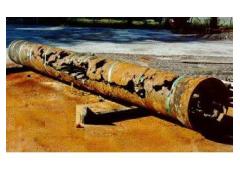Guardians of Metal: Corrosion Inhibitors in Industrial Protection
Description
In the expansive world of metalworking and industrial applications, where metal surfaces are constantly threatened by corrosion, corrosion inhibitors emerge as indispensable allies, preserving the integrity and longevity of vital components. These specialized additives play a pivotal role in mitigating the destructive effects of corrosion, ensuring the reliability and performance of metal equipment, structures, and infrastructure. Let's delve into the significance, mechanisms, and benefits of corrosion inhibitors:
Understanding Corrosion Inhibitors:
Corrosion inhibitors are chemical compounds formulated to protect metal surfaces from corrosion caused by environmental factors such as moisture, oxygen, acids, and salts. They function by forming a protective barrier on the metal surface or altering the electrochemical processes involved in corrosion, thereby inhibiting its progression.
Mechanisms of Action:
Corrosion inhibitors operate through various mechanisms, including:
- Barrier Protection: Forming a physical or chemical barrier on the metal surface, preventing corrosive agents from coming into contact with the metal substrate.
- Passivation: Promoting the formation of a passive oxide layer on the metal surface, which acts as a protective shield against further corrosion.
- Ion Adsorption: Adsorbing onto the metal surface and forming a protective film that inhibits corrosion by blocking the diffusion of corrosive ions.
- Cathodic Protection: Acting as sacrificial anodes or cathodic reactants, diverting corrosive reactions away from the metal surface.
Applications and Benefits:
Corrosion inhibitors find diverse applications across various industries and environments, including:
- Oil and Gas: Protecting pipelines, storage tanks, and equipment from corrosion in harsh environments such as offshore drilling platforms and refineries.
- Automotive: Preserving vehicle bodies, chassis, and engine components from rust and corrosion caused by exposure to road salts, moisture, and environmental pollutants.
- Marine: Shielding ships, vessels, and marine infrastructure from the corrosive effects of seawater, salt spray, and marine organisms.
- Infrastructure: Maintaining the structural integrity of bridges, buildings, and other critical infrastructure exposed to outdoor elements and environmental conditions.
- Metalworking: Enhancing the performance and longevity of cutting fluids, coolants, and lubricants used in machining and fabrication processes.
The benefits of corrosion inhibitors include:
- Corrosion Protection: Preventing or mitigating the formation of rust and corrosion on metal surfaces, prolonging their lifespan and durability.
- Cost Savings: Reducing maintenance, repair, and replacement costs associated with corrosion damage, downtime, and lost productivity.
- Environmental Protection: Minimizing environmental contamination and the release of hazardous substances from corroded metal surfaces, promoting sustainability and ecological responsibility.
- Improved Reliability: Enhancing the reliability and performance of industrial assets by minimizing the risk of corrosion-related failures and malfunctions.
Environmental and Regulatory Considerations:
In recent years, there has been increasing emphasis on the environmental and regulatory aspects of corrosion inhibitors. Manufacturers are developing environmentally friendly and biodegradable inhibitors that comply with stringent regulations and standards. Additionally, there is a focus on reducing the use of toxic or hazardous ingredients in inhibitor formulations and exploring sustainable alternatives derived from renewable sources.






You must log in or register a new account in order to contact the publisher
Useful information
- Avoid scams by acting locally or paying with PayPal
- Never pay with Western Union, Moneygram or other anonymous payment services
- Don't buy or sell outside of your country. Don't accept cashier cheques from outside your country
- This site is never involved in any transaction, and does not handle payments, shipping, guarantee transactions, provide escrow services, or offer "buyer protection" or "seller certification"







